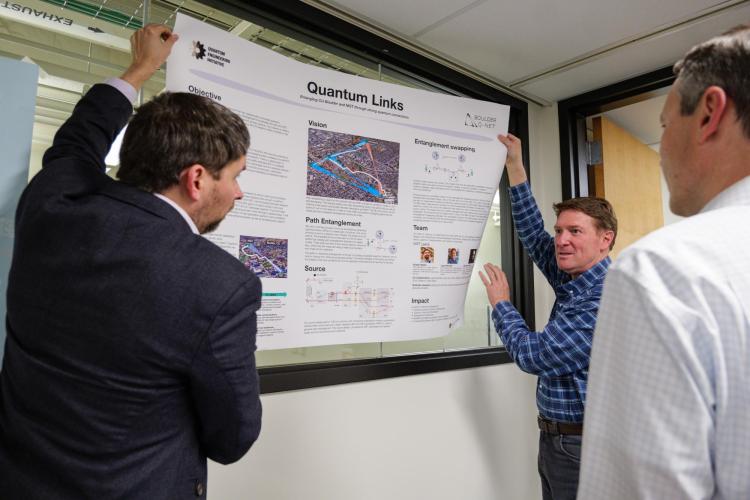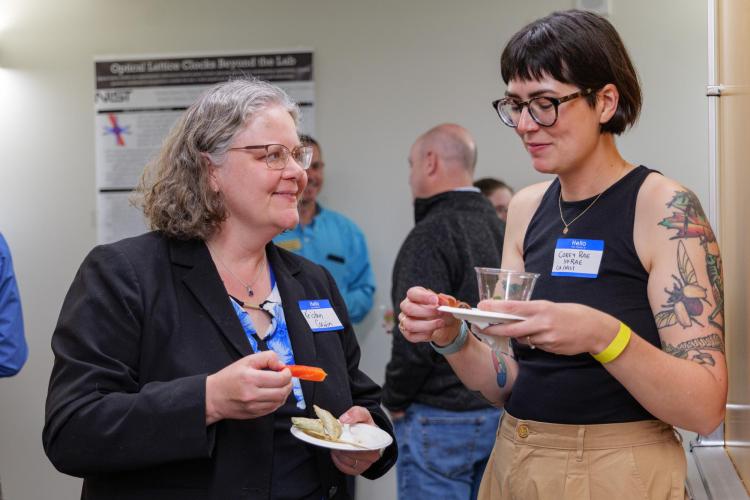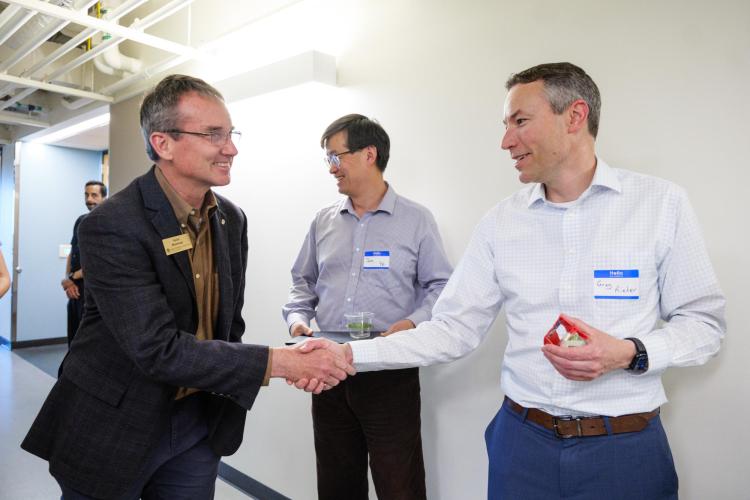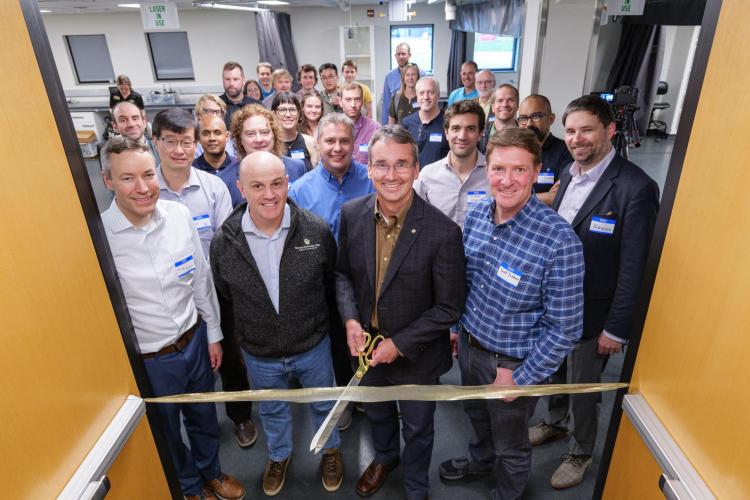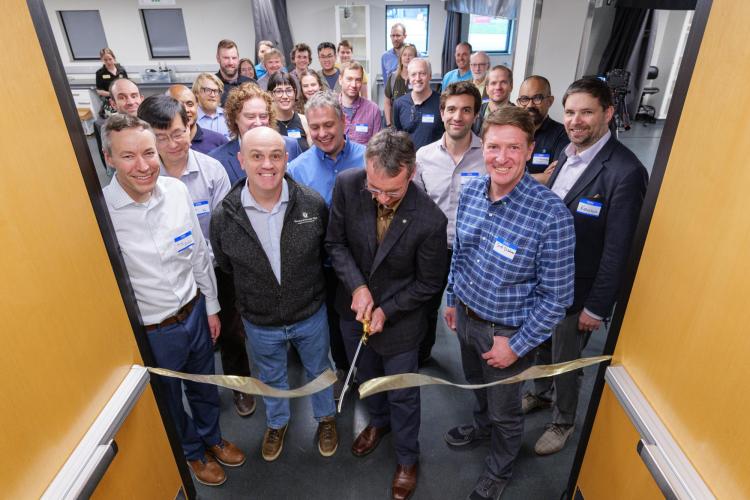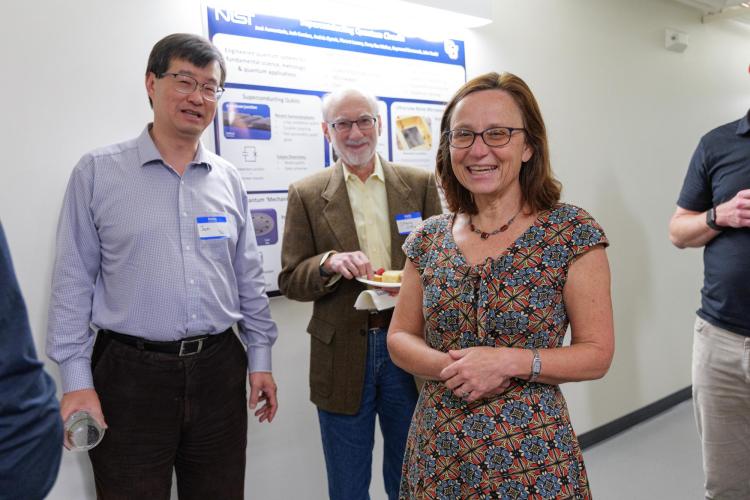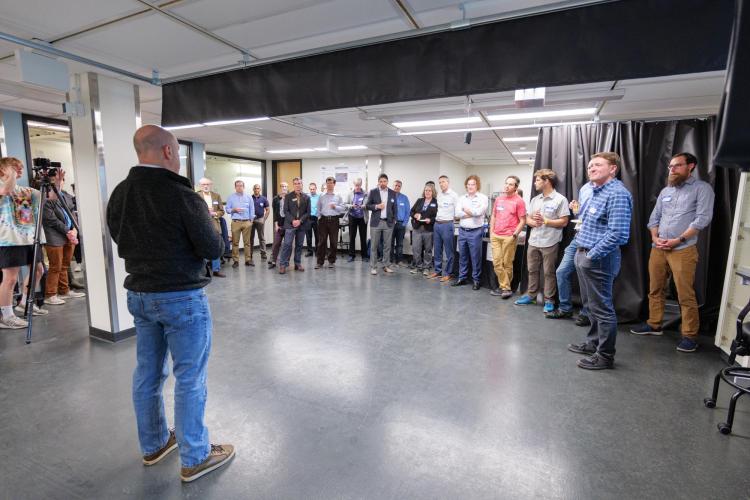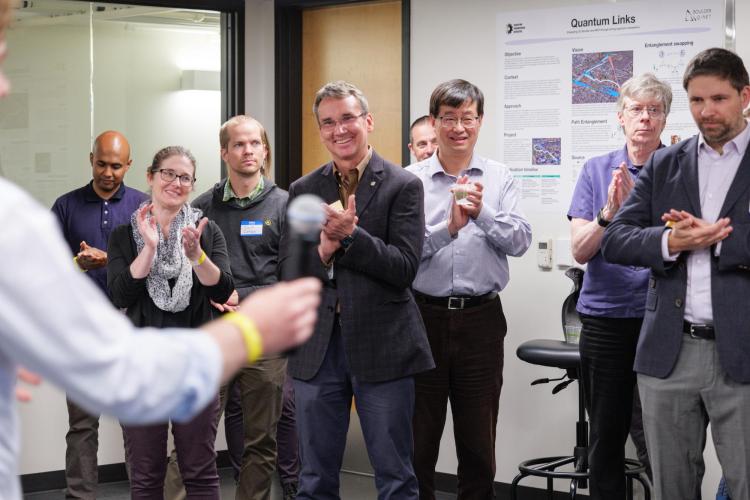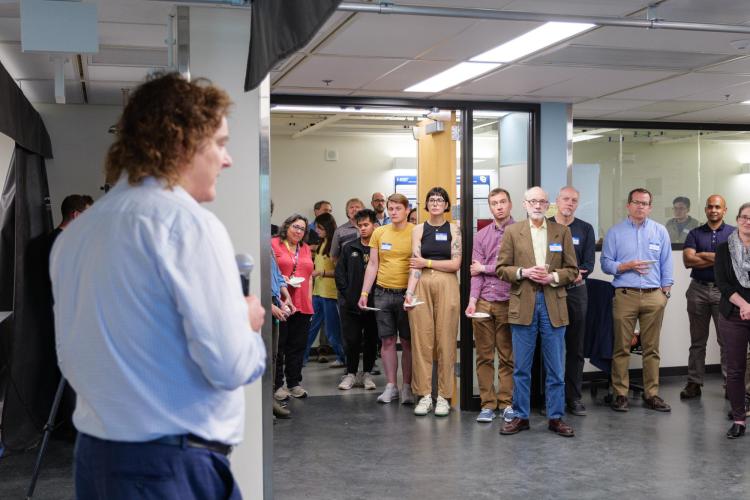Leadership highlights investment and momentum for collaboration, new projects at quantum engineering lab ribbon cutting
Leaders from across the CU Boulder campus and the National Institute of Standards and Technology (NIST) gathered last week to celebrate the official launch of the Quantum Engineering Initiative Lab space within the College of Engineering and Applied Science.
The new state-of-the-art laboratory and collaboration space in the Engineering Center will connect quantum researchers across campus with NIST researchers and local industry around quantum communications, sensing and computing. The effort is part of the Quantum Engineering Initiative in the College of Engineering and Applied Science and the campuswide CUbit Quantum Initiative to support research into an area of distinctive strength for CU Boulder and an increasingly important field globally, said Massimo Ruzzene, CU Boulder vice chancellor for research and innovation and dean of the institutes.
“Opening a dedicated space for this research is the result of a lot of hard work by many people on campus over the last five years,” he said. “This new lab will greatly extend the university’s quantum footprint and expand on a successful partnership between the university and NIST that is now over 60 years old.”
The new lab space will host three collaborative projects starting this summer:
- The first—Quantum Links—will establish a high-quality quantum network between the Quantum Engineering Initiative Lab space and NIST. This will be the first link of a larger Boulder Quantum Network. The research will be essential for advancing quantum communications, as well as fundamental science tests of quantum mechanics metrology. Shared detector infrastructure will begin immediately for this project.
- Another project deals with the development of ultra-precise optical clocks for use outside of a controlled lab space. These devices are the most accurate measurement tools ever made. However, their use on Earth and in space is severely restricted by their complexity and current state of engineering. Bringing the technology out of the lab would benefit communications networks and could be used for deep space navigation, among other applications.
- The final project will explore quantum microwave devices, which have shown great potential for quantum information processing. Work on this project will enable semi- and superconducting quantum computing. This work will be done with researchers in the Department of Electrical, Computer and Energy Engineering, and seeks to develop novel mechanical sensors and novel qubits.
Engineering Dean Keith Molenaar called quantum a “critical” research area that has the potential for transformative findings across everyday life in Colorado and beyond. In addition to investing in the new lab space and newly available coursework, he said the college is also hiring world-class faculty in this area and launching a Quantum Scholars Program in partnership with the College of Arts and Sciences.
“That program is one of the key investments in the Quantum Engineering Initiative," Molenaar said. "The undergraduate and graduate students who will be part of this research will be leaders in the quantum workforce of tomorrow. This new lab provides a space for them to work with some of the best researchers at the national lab and across the broader Boulder research ecosystem.”
Professor Scott Diddams serves as the faculty director for the Quantum Engineering Initiative. He was hired by the college in 2021 after previously working at NIST and CU Boulder doing experimental research in the field of optical frequency combs and quantum metrology. With the space now fully open and activity underway, he will be leading and coordinating work between NIST and engineering faculty and students.
“The vision is what got me to engineering from NIST, but it is the commitment to that overall vision by the college and across campus that has really impressed me,” he said. “I look forward to learning and working in this new space and seeing how engineering can help enable the next generation of quantum technology, which will transform our lives in the coming years.”


